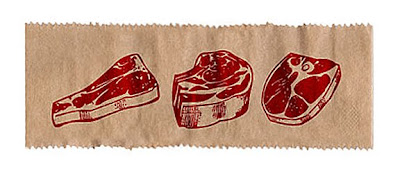The WikiLeaks information dump of over 90,000 documents covering the war in Afghanistan has some journalists quite worried. Not just about the content of the reports (although there is plenty to be concerned with on that front), but about what the reaction to the leak means for the media and the public. Specifically, the lack of much reaction at all. NYU journalism professor Jay Rosen points out that often huge revelations produce the smallest consequences (how sadly ironic). At some level, the information overload is so great that people just ignore it and move on to something more bite-sized.
Some quotes:
'We tend to think: big revelations mean big reactions. But if the story is too big and crashes too many illusions, the exact opposite occurs.' My fear is that this will happen with the Afghanistan logs. Reaction will be unbearably lighter than we have a right to expect— not because the story isn’t sensational or troubling enough, but because it’s too troubling, a mess we cannot fix and therefore prefer to forget.
Last week, it was the Washington Post’s big series, Top Secret America, two years in the making. It reported on the massive security shadowland that has arisen since 09/11. The Post basically showed that there is no accountability, no knowledge at the center of what the system as a whole is doing, and too much “product” to make intelligent use of. We’re wasting billions upon billions of dollars on an intelligence system that does not work. It’s an explosive finding but the explosive reactions haven’t followed, not because the series didn’t do its job, but rather: the job of fixing what is broken would break the system responsible for such fixes.
The mental model on which most investigative journalism is based states that explosive revelations lead to public outcry; elites get the message and reform the system. But what if elites believe that reform is impossible because the problems are too big, the sacrifices too great, the public too distractible? What if cognitive dissonance has been insufficiently accounted for in our theories of how great journalism works… and often fails to work?
I don’t have the answer; I don’t even know if I have framed the right problem.
Regardless of how it is framed, I think Rosen has identified a troubling problem. How does one communicate truly consequential ideas or findings in a way that has real consequence? How do you get someone out from under a pile of information to go act (and react) in the world? Is it a matter of being overwhelmed into paralysis or not really caring to begin with? Some questions worth considering.
The rest of Rosen's post also brings up a number of points about the nature of WikiLeaks (the "world’s first stateless news organization") and the rise of the political press. Read it here.
Related article at Slate: The WikiLeaks Paradox
And another (added 7/29): How to Give (and Take) a Leak - drip irrigation works better than a monsoon
The rest of Rosen's post also brings up a number of points about the nature of WikiLeaks (the "world’s first stateless news organization") and the rise of the political press. Read it here.
Related article at Slate: The WikiLeaks Paradox
And another (added 7/29): How to Give (and Take) a Leak - drip irrigation works better than a monsoon






